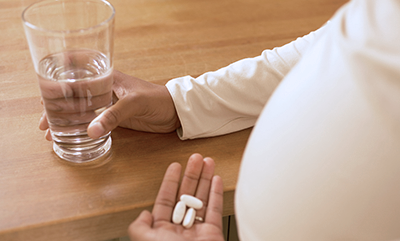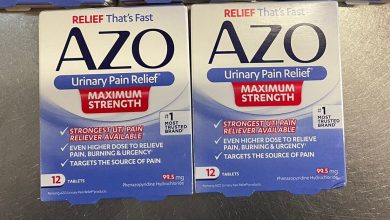Drugs Safe In Pregnancy Chart

Although some medicines are considered safe during pregnancy, the effects of other medicines on your unborn baby are unknown. Certain medicines can be most harmful to a developing baby when taken during the first three months of pregnancy, often before a woman even knows she is pregnant.
Available data indicate that more than 50% of pregnant women take prescription or nonprescription (over-the-counter) drugs or use social drugs (such as tobacco and alcohol) or illicit drugs at some time during pregnancy, and use of drugs during pregnancy is increasing. In general, drugs should not be used during pregnancy unless necessary because many can harm the fetus. Less than 2 to 3% of all birth defects result from drugs that are taken to treat a disorder or symptom.
FDA Categorization Of Drugs For Use In Pregnancy
| Category | Description |
| A | Adequate, well-controlled studies in pregnant women have not shown an increased risk of fetal abnormalities. |
| B | Animal studies have revealed no evidence of harm to the fetus; however, there are no adequate and wellcontrolled studies in pregnant women. Or |
| Animal studies have shown an adverse effect, but adequate and well-controlled studies in pregnant women have failed to demonstrate a risk to the fetus. | |
| C | Animal studies have shown an adverse effect and there are no adequate and well-controlled studies in pregnant women. Or |
| No animal studies have been conducted and there are no adequate and well-controlled studies in pregnant women. | |
| D | Studies, adequate well-controlled or observational, in pregnant women have demonstrated a risk to the fetus. However, the benefits of therapy may outweigh the potential risk. |
| X | Studies, adequate well-controlled or observational, in animals or pregnant women have demonstrated positive evidence of fetal abnormalities. The use of the product is contraindicated in women who are or may become pregnant. |
Which medications are safe for use during pregnancy?
The chart below lists the OTC medications that are considered low risk for pregnant women when taken occasionally to treat a mild illness. We’ve listed some brand names as examples, but there are many more on the market.
| Problem | Safe medicine to take when pregnant |
| Heartburn, gas and bloating, upset stomach | Antacids for heartburn (Maalox, Mylanta, Rolaids, Tums) Simethicone for gas pains (Gas-X, Maalox Anti-Gas, Mylanta Gas, Mylicon) |
| Cough or cold | Guaifenesin, an expectorant (Hytuss, Mucinex, Naldecon Senior EX, Robitussin) Dextromethorphan, a cough suppressant (Benylin Adult, Robitussin Maximum Strength Cough, Scot-Tussin DM, Vicks 44 Cough Relief) Guaifenesin plus dextromethorphan (Benylin Expectorant, Robitussin DM, Vicks 44E) Cough drops Vicks VapoRub Not safe to take: Cold remedies that contain alcohol The decongestants pseudoephedrine and phenylephrine, which can affect blood flow to the placenta |
| Pain relief, headache, and fever | Acetaminophen (Anacin Aspirin-Free, Tylenol, Shake That Ache!) |
| Allergy relief | Chlorpheniramine, an antihistamine (Chlor-Trimeton allergy tablets) Loratadine, an antihistamine (Alavert, Claritin, Tavist ND, Triaminic Allerchews) Diphenhydramine, an antihistamine (Banophen, Benadryl, Diphenhist, Genahist) |
| Constipation, hemorrhoids, and diarrhea | Psyllium (Konsyl-D, Metamucil, Modane Bulk, Perdiem) Polycarbophil (Equalactin, Fiber-Lax, FiberNorm, Konsyl, Mitrolan) Methylcellulose (Citrucel, UniFiber) Other laxatives and stool softeners (Colace, Dulcolax, Maltsupex, Move It Along!, milk of magnesia) Hemorrhoid creams (Anusol, Preparation H, Tucks) Loperamide, antidiarrheal medication (Imodium, Kaopectate II, Maalox Total Relief, Pepto Diarrhea Control) |
| Yeast infections and other fungal infections such as athlete’s foot | Clotrimazole (Cruex, Gyne-Lotrimin 3, Lotrimin AF, Mycelex-7) Miconazole (Desenex, Femizol-M, Micatin, Monistat 3) Terbinafine (Lamisil AT) Tioconazole (Monistat 1, Vagistat-1) Butoconazole (Femstat 3, Mycelex-3) Butenafine (Lotrimin Ultra) Tolnaftate (Absorbine Athlete’s Foot Cream, Absorbine Footcare, Genaspor, Tinactin) Not safe to take: Certain Cruex, Desenex, and FungiCure products that may contain antifungal agents not listed here and should not be used during pregnancy. Check labels carefully and avoid any products containing active ingredients not listed here. |
| Insomnia | Diphenhydramine (Benadryl, Maximum Strength Unisom SleepGels, Nytol, Sominex, Eazzze the Pain!) Doxylamine succinate (Unisom SleepTabs) |
| Itching | Hydrocortisone (Cortaid, Lanacort) |
| Cuts and scrapes | Polysporin |
Commonly Used Drugs In Pregnancy and Their Categories
| Drugs | Category |
| Analgesics and Antipyretics | B and C |
| Acetaminophen | B |
| Phenacetin | B |
| Aspirin | C |
| Antiemetics | B and C |
| Doxylamine | B |
| Meclizine | B |
| Cyclizine | B |
| Dimenhydrinate | B |
| Antibiotics | B, C and D |
| Penicillin, Ampicillin, Amoxycillin, | B |
| Cloxacillin Cephalosporins | B |
| Erythromycin | B |
| Gentamicin | C |
| Amikacin | C/D |
| Streptomycin | D |
| Sulphonamides | B/D |
| Tetracyclines | D |
| Amoebicides | B |
| Metronidazole | |
| Anthelmentics | B |
| Piperazine | |
| Mebendazole | |
| Antimalarials | C |
| Antifungals | C |
| Anti TB Drugs | B and C |
| Ethambutol | B |
| INH | C |
| Rifampicin | C |
| Pyrazinamide | C |
| PAS | C |
| Vitamins | |
| B,C,D,E,folic acid | A |
| Hormones | |
| Thyroxin | A |
| Androgens | X |
| Estrogens | X |
| Progestogens- | |
| Hydroxyprogestrone | D |
| Medroxyprogestrone | D |
| Norethindrone | X |
| Norgestrel | X |
| Bronchodilators | C |
Medications Contraindicated In Pregnancy
| Drug | Comments |
| Vitamin A and its derivatives including isotretinein, accutane and etretinate. | Significant risk of spontaneous abortion and risk of many significant anomalies. |
| ACE inhibitors | May cause kidney damage in the fetus when used in II and III trimester, decrease in the amount of amniotic fluid and deformities of face, limbs and lungs. |
| Anticoagulants- warfarin | Use during I trimester produces defects like nasal hypoplasia and a depressed nasal bridge; termed as Fetal warfarin Syndrome. Use during II and III trimesters is associated with increased risk of fetal malformations. |
| – Heparin | Safe but if taken for long time osteoporosis and decrease in number of platelets in pregnant women occurs. |
| Estrogen and Androgens | Genital tract malformations. |
| Thyroid preparations- | |
| Methimazole | Overactive and enlarged Thyroid gland |
| Carbimazole | Overactive and enlarged Thyroid gland |
| Radioactive iodine | Underactive Thyroid gland in fetus |
| Propylthiouracil | Safe. |
| Anticonvulsants- | |
| Carbamazepine | Risk of birth defects |
| Phenytoin, Phenobarbitone | Bleeding problem in the newborn which can be prevented if a pregnant woman takes Vit. K by mouth every day for a month before delivery or if the newborn baby is given an injection of Vit. K soon after birth. |
| Risk of birth defects. | |
| Trimethadione | Increased risk of miscarriage in the women |
| Sodium valproate | Increased risk of birth defects in fetus; including a cleft palate and abnormalities of the heart, face, skull, hands or abdominal organs. |
| Antidepressants– Lithium | Birth defects (mainly of the heart), lethargy, decreased muscle tone, underactivity of Thyroid gland and nephrogenic diabetes insipidus in the new born. Ebstein’s anomaly (tricuspid valve malformation) has been reported in a number of foetuses exposed to this drug. |
| NSAIDs | |
| Aspirin and other Salicylates | Delay in start of labor, premature closing of ductus arteriosus, jaundice, brain damage in the fetus and bleeding problems in the woman during and after delivery and in the newborn. |
| Antibiotics– Tetracycline | Slowed bone growth, permanent yellowing of the teeth and increased susceptibility to cavities in the body. |
| Chloramphenicol | Gray Baby Syndrome. |
| Ciprofloxacin | Possibility of joint abnormalities (seen in animals) |
| Kanamycin and Streptomycin | Damage to fetus’s ear resulting in deafness (risk of ototoxicity) |
| Sulfonamides | Jaundice and brain damage in newborn |
| Antineoplastic agents- | |
| Busulfan | Birth defects such as less than expected growth before birth, underdevelopment of lower jaw, cleft palate, abnormal development of skull bones, spinal defects, ear defects and club foot. |
| Chlorambucil | |
| Cyclophosphamide | |
| Methotrexate | |
| Oral Hypoglycemic drugs | A very low level of sugar in the blood of newborn. Inadequate control of diabetes in the pregnant woman |
| Chlorpropamide | |
| Tolbutamide |
Are natural or alternative remedies safe to use during pregnancy?
Just because a product is labeled “natural” doesn’t necessarily mean it’s safe to take during pregnancy. Like any drug, some natural remedies are considered low risk in pregnancy and some aren’t.
The biggest challenge with determining the safety and effectiveness of natural or alternative remedies is that many haven’t yet been studied in pregnant or breastfeeding women, so the risks are simply unknown. Also, many natural and homeopathic remedies aren’t well regulated, so it’s difficult to know exactly what’s in them.





